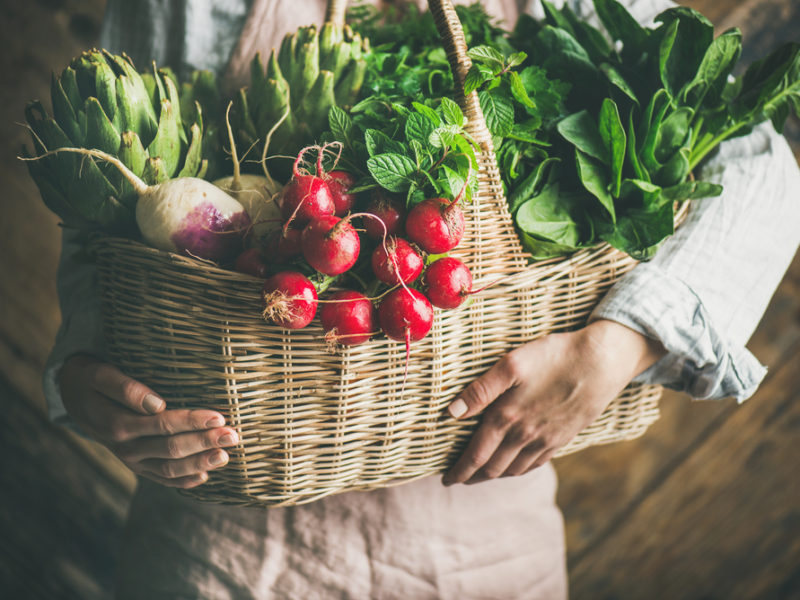Do you want to be the healthiest, strongest version of yourself? Would you like to boost your immunity? Then, you should have these nine nutrient-dense foods in your grocery cart!
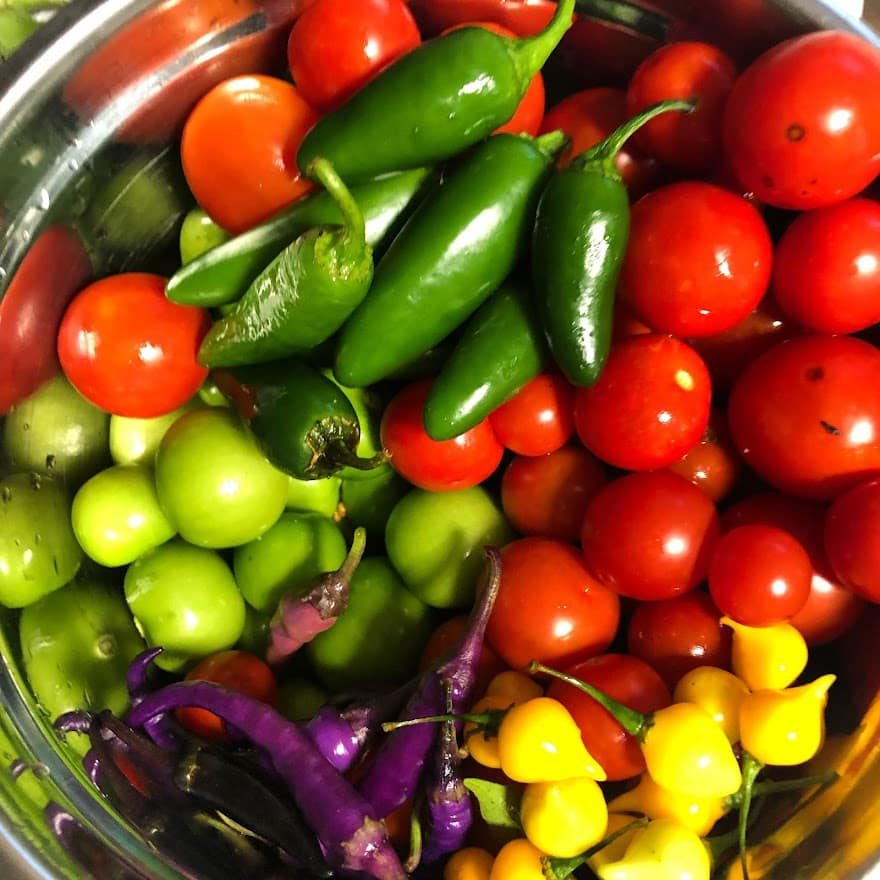
This post may contain affiliate links, which means I can receive a commission from any purchase made from the links. I earn from purchases from Amazon links. See the disclosure policy here.
Get smart about nutrition, and get active by fueling your body with everything it needs to recover, repair, and fight off infections. Put some real, nourishing food in your cart on your next shopping trip. Enrich your diet and boost immunity with these amazing budget-friendly and nutrient-dense foods.
I am showing you the most nourishing foods that should be in your shopping cart every single time you shop with these 9 must-have nutrient-dense foods.
This post is all about which nutrient-dense foods you should be eating.
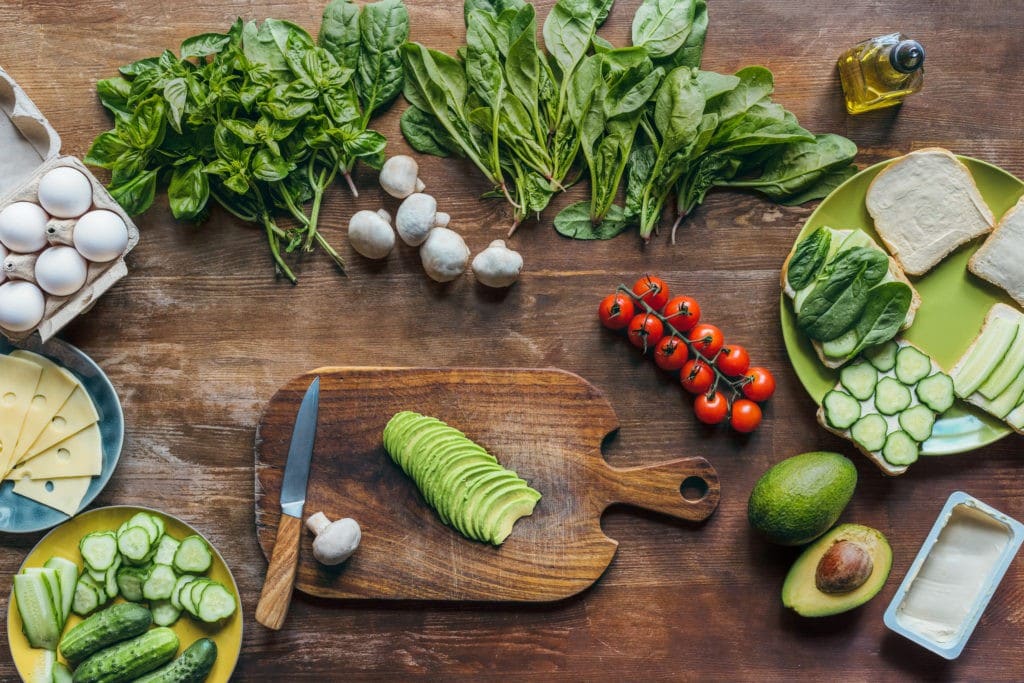
Nutrient Nectar: 9 Weekly Foods for a Power-Packed Diet
Better than a multivitamin, eating a rainbow of healthy foods will energize and feed every cell in your body.
It is important to nourish ourselves, especially after a pandemic with the virus that causes Covid-19.
According to Kim et al., people who are metabolically unhealthy (overweight or obese) have a significant increase in developing critical cases of the virus.
The path to health relies on examining our environment by focusing on nourishment and exercise, removing unhealthy components such as toxic products and air fragrances, and doing everything to balance our lives and lower stress.
9 Nutrient-dense Foods For Your Shopping Cart
Eating well daily on your own and, even more so, choosing and planning quality meals for your family on a budget is challenging. However, it is possible, and you can do it!
Buy organic fruits and vegetables as often as possible. Meet those needs, and add in other items if your budget permits.
Pro-tip: To get the most nutrient-dense foods on a budget, choose the foods with the most nutrition first. Investing in quality food should be a priority.
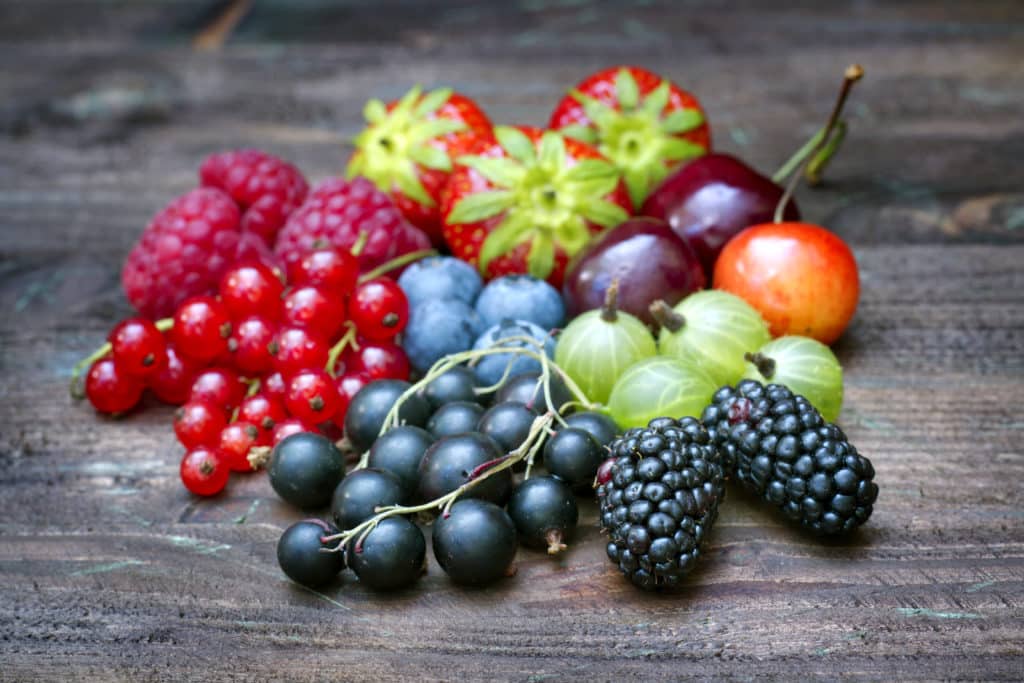
#1 Berries & Grapes
Think reds, blues, purples and blacks! It is best to buy them in season or frozen if they are not in season.
These colored fruits are loaded with phytochemicals and nutrients that fortify our cells so they function properly.
With modern advancements in nutritional science, much has been learned about the role of phytochemicals (bioactive compounds found in plants) in our health. Antioxidants help in the prevention and treatment of chronic illnesses.
They scavenge for free radicals and fight inflammation. According to research from Zhang et al., phytochemicals have protective properties for cancer, aging, cardiovascular diseases, diabetes, obesity, and neurodegenerative diseases.
Read this next to Learn how to shop for healthy foods!

Blueberries taste great and contain nutrients, antioxidants, and phytochemicals that benefit your health.
According to Nunes et al., blueberries have insulin-sensitizing effects, which are excellent for Type 2 diabetics.
These scientists discovered that blueberries have enzymes that help break down starch, which could slow the delay of carbohydrate digestion, which can balance blood sugar.
Add Nutrient-Dense Foods like Blueberries, Blackberries, Raspberries, and Muscadines to Your Shopping List!
Put These Nutrient-dense Foods in Your Cart!
- Blueberries
- Raspberries
- Cranberries
- Cherries
- Blackberries
- Darkly-pigmented Grapes
- Strawberries
- Purple Muscadines

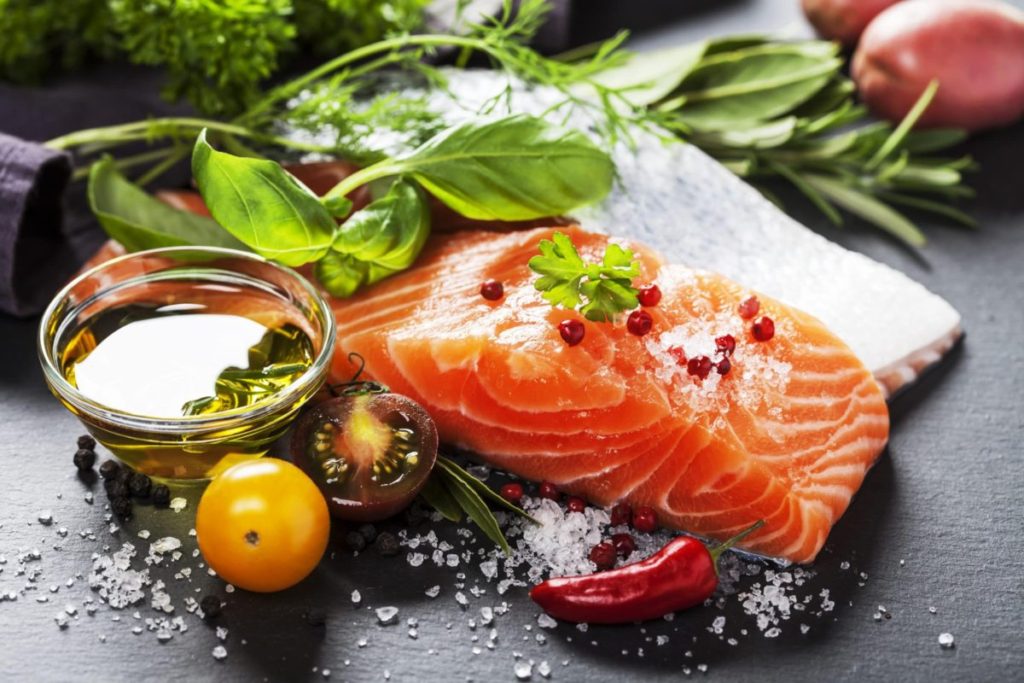
#2 Wild-Caught Salmon
Salmon is full of nutrients like healthy fats, amino acids, protein, and iron. However, your location can affect which types of salmon are available to you.
In this study, many types of salmon were evaluated for their mercury content and nutrition. Findings suggest that wild Sockeye and wild Chinook salmon are the most nutrient-dense and have the highest omega-3 content.
However, it was noted that farmed Atlantic salmon is an excellent option due to nutrient density, low mercury, affordability, and availability.
Salmon is a Nutrient-Dense Brain Food
Studies reveal that certain Omega 3 fatty acids found in fish like salmon have a neuroprotective factor and prove helpful in the prevention of neurodegenerative diseases like Alzheimer’s and Parkinson’s.
What if these foods improve mental health conditions like ADHD, anxiety, depression, schizoaffective disorder, and more? While we wait on the upcoming research in functional health and nutrition, let’s eat healthy anyway!
Aim to eat salmon weekly for a brain boost!
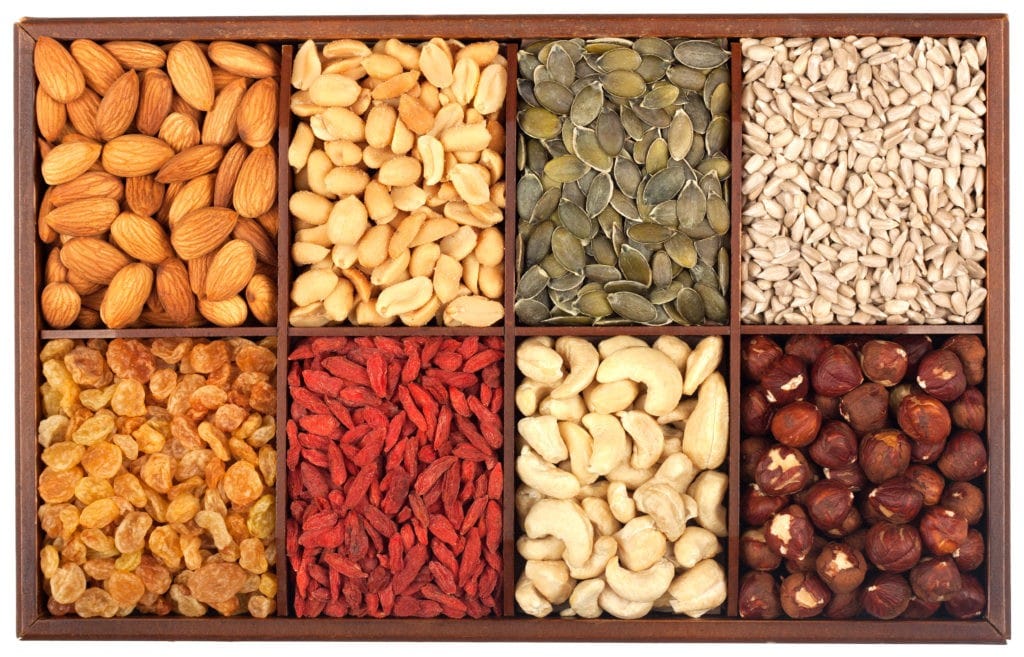
#3 Raw Nuts and Seeds
Nuts and seeds are nutrient-dense foods with many complex bioactive compounds. They are rich in plant proteins, fiber, minerals, and phytonutrients that benefit our health.
According to research, including nuts and seeds in your diet can help prevent heart disease, gallstones, diabetes, cancer, and inflammation.
Nuts are high in healthy fats that improve metabolic health instead of promoting obesity. Look for a mixture of your favorites in the bulk food aisle, and make a trail mix!
Enjoy 1/4 cup a day with breakfast, or top off your lunch salad with a handful!

Nutrient-Dense Nuts and Seeds
- Flax or Ground Flax Seed
- Chia Seeds
- Hemp Hearts
- Pumpkin Seeds
- Sunflower Seeds
- Brazil Nuts
- Pistachios
- Pecans
- Almonds
- Cashews
- Macadamia
- Walnuts
- Hazelnuts
Pro-Tip: Try to find local nuts and seeds when you can, and learn more about why you should always eat “in-season” foods!
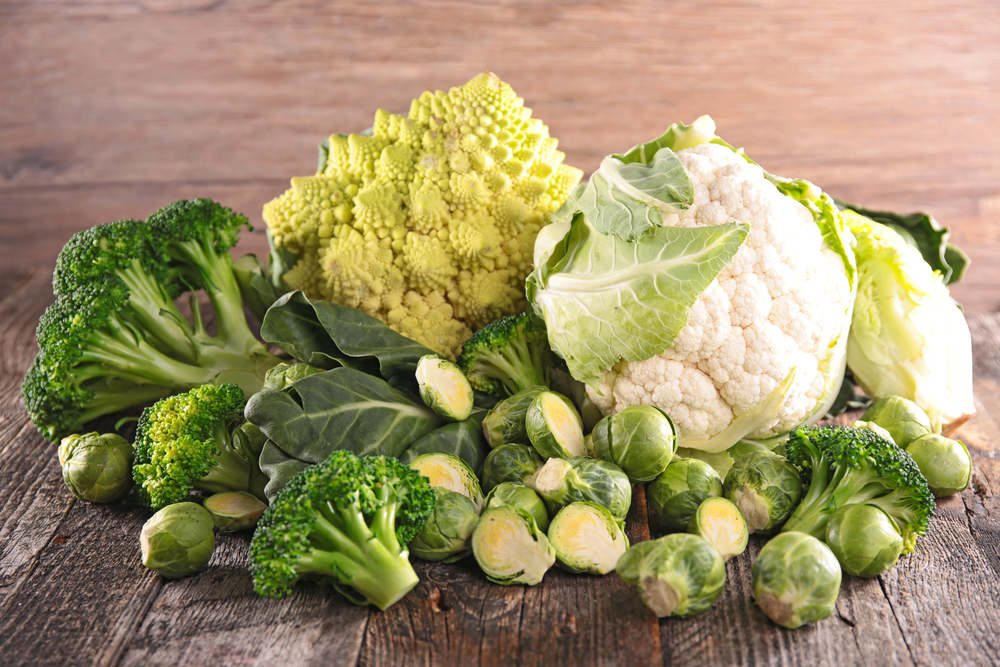
#4 Cruciferous Veggies
Cruciferous vegetables contain glucosinolates, sulfur-containing compounds that break down into metabolites that help prevent disease by inducing antioxidant and anti-inflammatory responses within our cells.
Along with these impressive compounds, cruciferous vegetables contain so many phytonutrients that our bodies need to create a balanced, healthy state of being. Terry Wahls, MD, creator of the Wahls Protocol Diet, suggests eating 3 cups of these vegetables every day.
Look for These Nutrient-Dense Foods in Your Market
- Cabbage, all varieties
- Kale, all varieties
- Broccoli, Rapini, and Broccoli Rabe
- Cauliflower- Have you tried purple?
- Romanesco Broccoli
- Brussel Sprouts
- Radish, Daikon, etc
- Bok Choy, Pak Choy, Tatsoi, etc.
- Turnip
- Watercress
- Kohlrabi
- Horseradish
- Rutabaga
- Mustard Greens
- Arugula
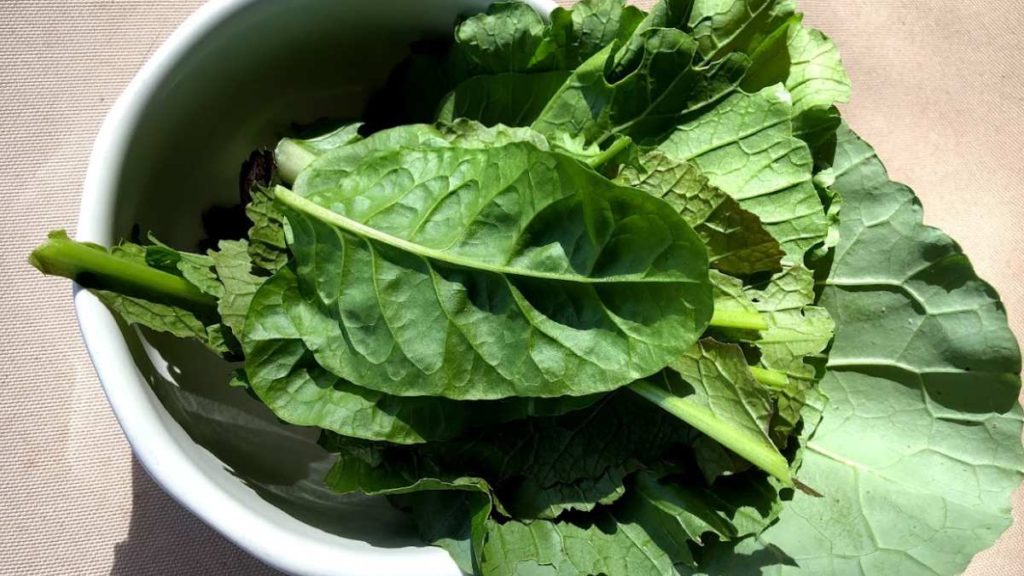
#5 Greens
Don’t forget to eat your greens! There are endless greens besides lettuce, spinach, and kale. Importantly, you can grow your own foods at home in no time.
Add these Nutrient-Dense Greens to Salads, Smoothies, and Stir-fry
- Romaine
- Lettuces and varieties of leafy greens, skip the iceberg.
- Spinach
- Kale
- Dandelion
- Herbs- parsley, cilantro, etc
- Sorrel
- Collard
- Mustard
- Turnip, Radish, Beets, Rutabaga Tops
- Swiss Chard
- Escarole
- Endive
- Arugula
- Microgreens
Many of the greens on this list are also cruciferous vegetables, so you can kill two birds with one stone by choosing those!
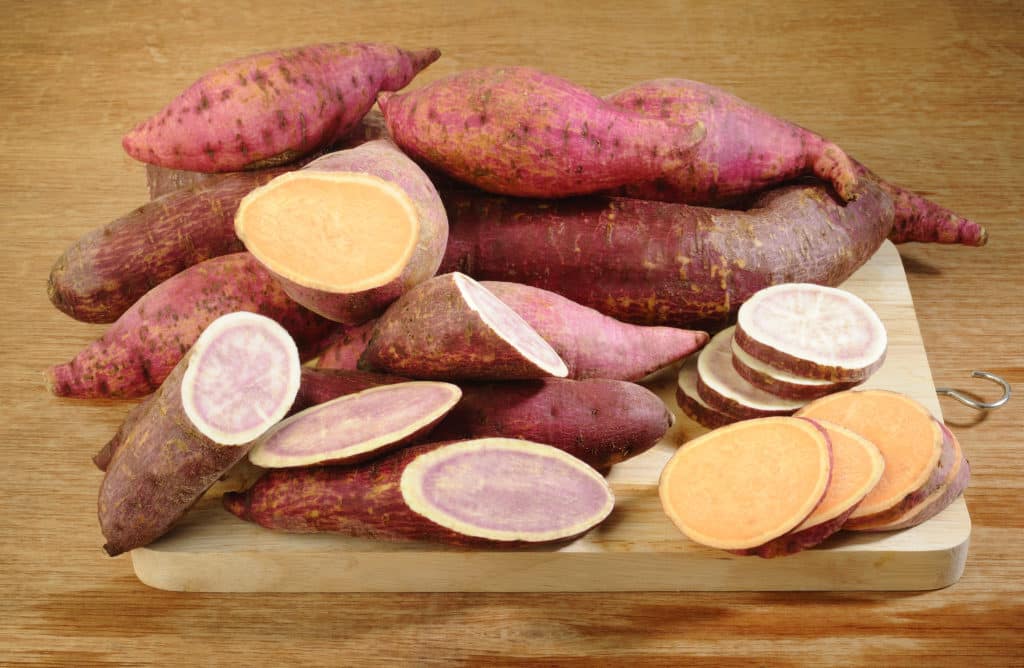
#6 Sweet Potatoes
Have you ever made a hearty vegetable soup with sweet potatoes instead of white potatoes?! If you haven’t, you have got to try it. It is so good.
Sweet potatoes are a comfort food! If you don’t like sweet potatoes, you probably have not found the right recipe yet!
Sweet potatoes come in various colors and contain multiple phytochemicals that are wonderful for health.
Moreover, these carotenoids, flavonoids, anthocyanins, and phenolic acids fortify our bodies on a cellular level to fight off infections and chronic diseases like cancer.

Purple sweet potatoes have the highest anthocyanins, and the bright orange ones have the most beta-carotene.
A few varieties of sweet potatoes are generally available in stores, but there are so many that are not. You can grow sweet potatoes at home and choose from tons of varieties.
More importantly, you can grow them organically and even in containers!
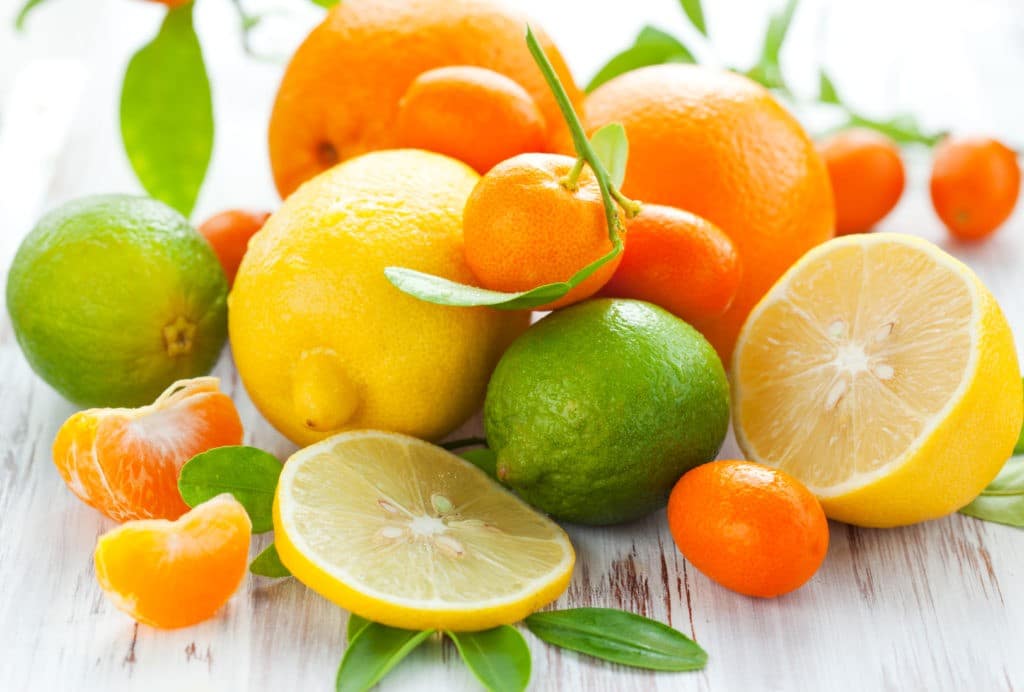
#7 Citrus Fruits
Citrus fruits are full of antioxidants. For instance, flavanones from oranges are absorbed well by the gut microbiota and support a healthy intestinal lining, which helps promote better digestion.
Similarly, lemons and limes contain flavonoids that improve insulin sensitivity and glucose tolerance. These antioxidants scavenge free radicals and help with inflammation, which is the key to preventing all chronic diseases.
According to new research, including citrus in one’s diet has been associated with improved heart health. Plant foods like citrus and the others on this list are necessary for a healthy, long life.
Have an orange with breakfast every day. Squeeze a lemon in your water daily, and add lime to your tacos and salads!
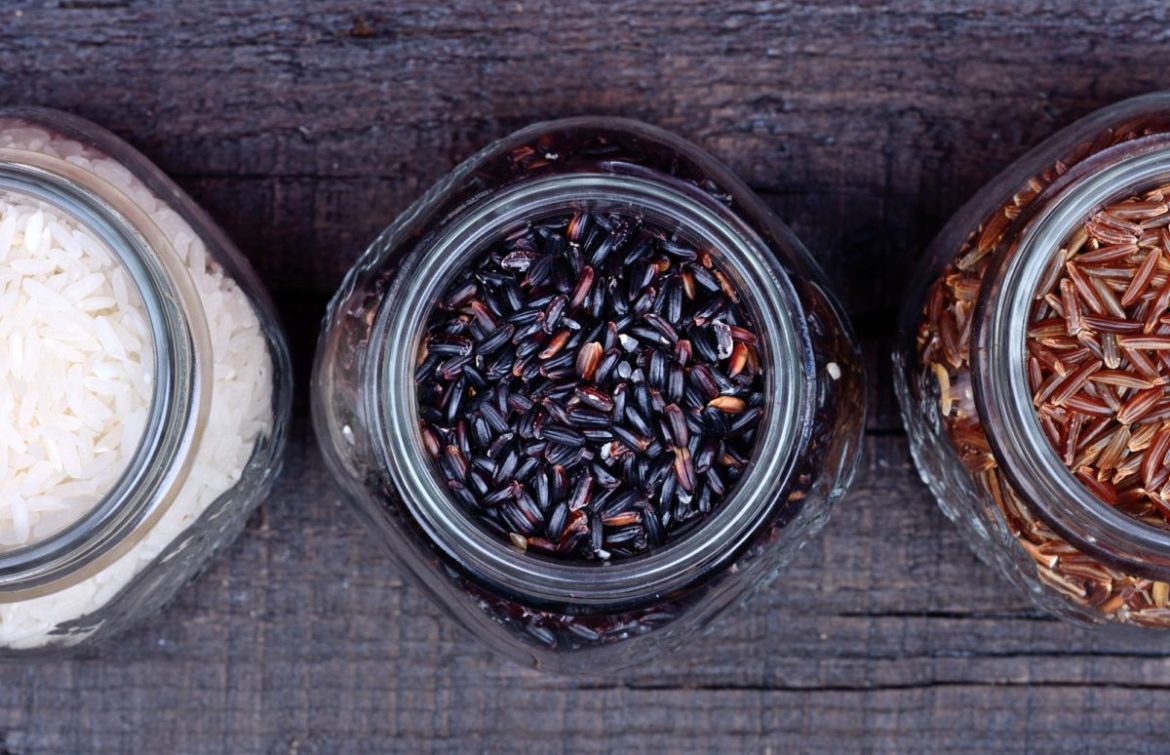
#8 Forbidden Rice
Forbidden rice, or black Japonica rice, is a staple at our house. It is beautiful, aromatic, and flavorful. Although we should moderate how much we eat, I love beans and grains.
Forbidden rice is loaded with anthocyanins. Similarly, it is higher in iron and protein than other rice kinds.
Opt for forbidden rice when you indulge in a comforting meal with beans or grains. Then, you will be rewarded with an extra dose of health-promoting antioxidants and satisfying flavors in this grain.
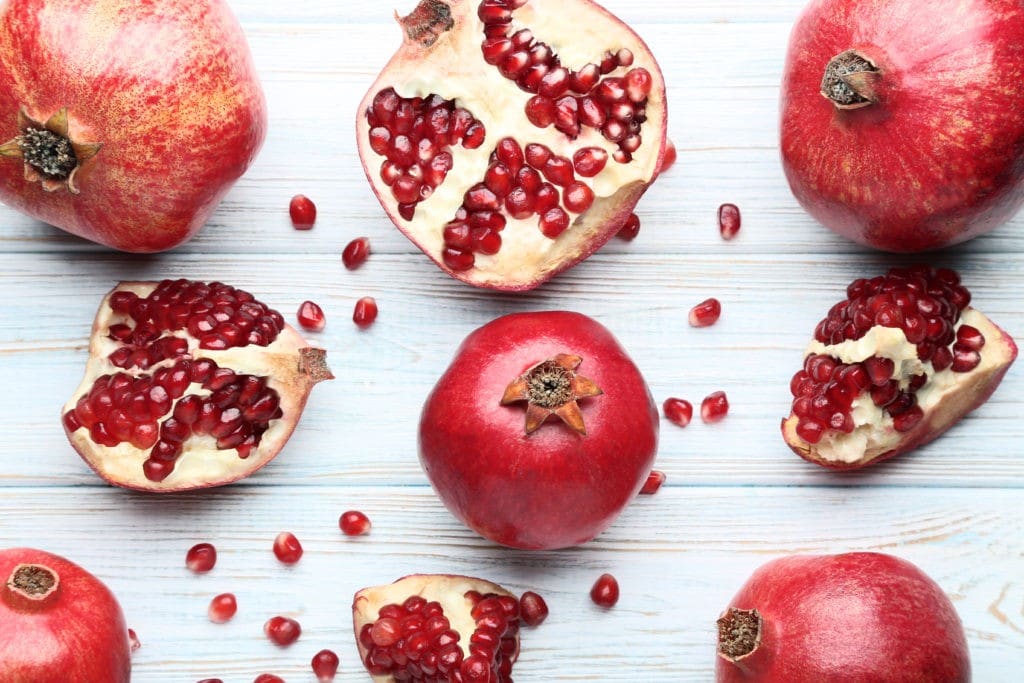
#9 Pomegranates
The amazing Pomegranate is available seasonally through late fall and winter here on the east coast. This fruit is tasty and contains essential vitamins, minerals, and phytochemicals.
Also, it is so dense in nutrition that it is referred to as a “superfood.” Some clinical studies have shown promising results from pomegranates in preventing and treating chronic diseases such as heart disease and cancer.
According to research, anthocyanins, phenols, and oils in the seeds can have a major impact on the health and recovery of our cells. Importantly, you should eat the whole seeds whenever possible, although the juice is a wonderful treat!
Grab some pomegranates the next time they are available near you, and consider planting a few pomegranate shrubs in your garden or landscaping!
Sources:
Kim NH, Kim KJ, Choi J, Kim SG. Metabolically unhealthy individuals, either with obesity or not, have a higher risk of critical coronavirus disease 2019 outcomes than metabolically healthy individuals without obesity. Metabolism. 2021 Sep 30:154894. doi: 10.1016/j.metabol.2021.154894. Epub ahead of print. PMID: 34600905; PMCID: PMC8482539.
Nunes, S., Vieira, P., Gomes, P., Viana, S. D., & Reis, F. (2021). Blueberry as an Attractive Functional Fruit to Prevent (Pre)Diabetes Progression. Antioxidants, 10(8), 1162. https://doi.org/10.3390/antiox10081162
Zhang, Y. J., Gan, R. Y., Li, S., Zhou, Y., Li, A. N., Xu, D. P., & Li, H. B. (2015). Antioxidant Phytochemicals for the Prevention and Treatment of Chronic Diseases. Molecules, 20(12), 21138–21156. https://doi.org/10.3390/molecules201219753
Colombo, S. M., & Mazal, X. (2020). Investigation of the nutritional composition of different types of salmon available to Canadian consumers. Journal of Agriculture and Food Research, 2, 100056. https://doi.org/10.1016/j.jafr.2020.100056
Tilg, H. (2015). Cruciferous vegetables: prototypic anti-inflammatory food components. Clinical Phytoscience, 1(1). https://doi.org/10.1186/s40816-015-0011-2
Park, S. Y., Lee, S. Y., Yang, J. W., Lee, J. S., Oh, S. D., Oh, S., Lee, S. M., Lim, M. H., Park, S. K., Jang, J. S., Cho, H. S., & Yeo, Y. (2016). Comparative analysis of phytochemicals and polar metabolites from colored sweet potato (Ipomoea batatas L.) tubers. Food Science and Biotechnology, 25(1), 283–291. https://doi.org/10.1007/s10068-016-0041-7
Williamson, G. (2017). The role of polyphenols in modern nutrition. Nutrition Bulletin, 42(3), 226–235. https://doi.org/10.1111/nbu.12278
Mahmoud, A. M., Hernández Bautista, R. J., Sandhu, M. A., & Hussein, O. E. (2019). Beneficial Effects of Citrus Flavonoids on Cardiovascular and Metabolic Health. Oxidative Medicine and Cellular Longevity, 2019, 1–19. https://doi.org/10.1155/2019/5484138
Johanningsmeier, S. D., & Harris, G. K. (2011). Pomegranate as a Functional Food and Nutraceutical Source. Annual Review of Food Science and Technology, 2(1), 181–201. https://doi.org/10.1146/annurev-food-030810-153709
This post was all about which nutrient-dense foods you should eat daily.

